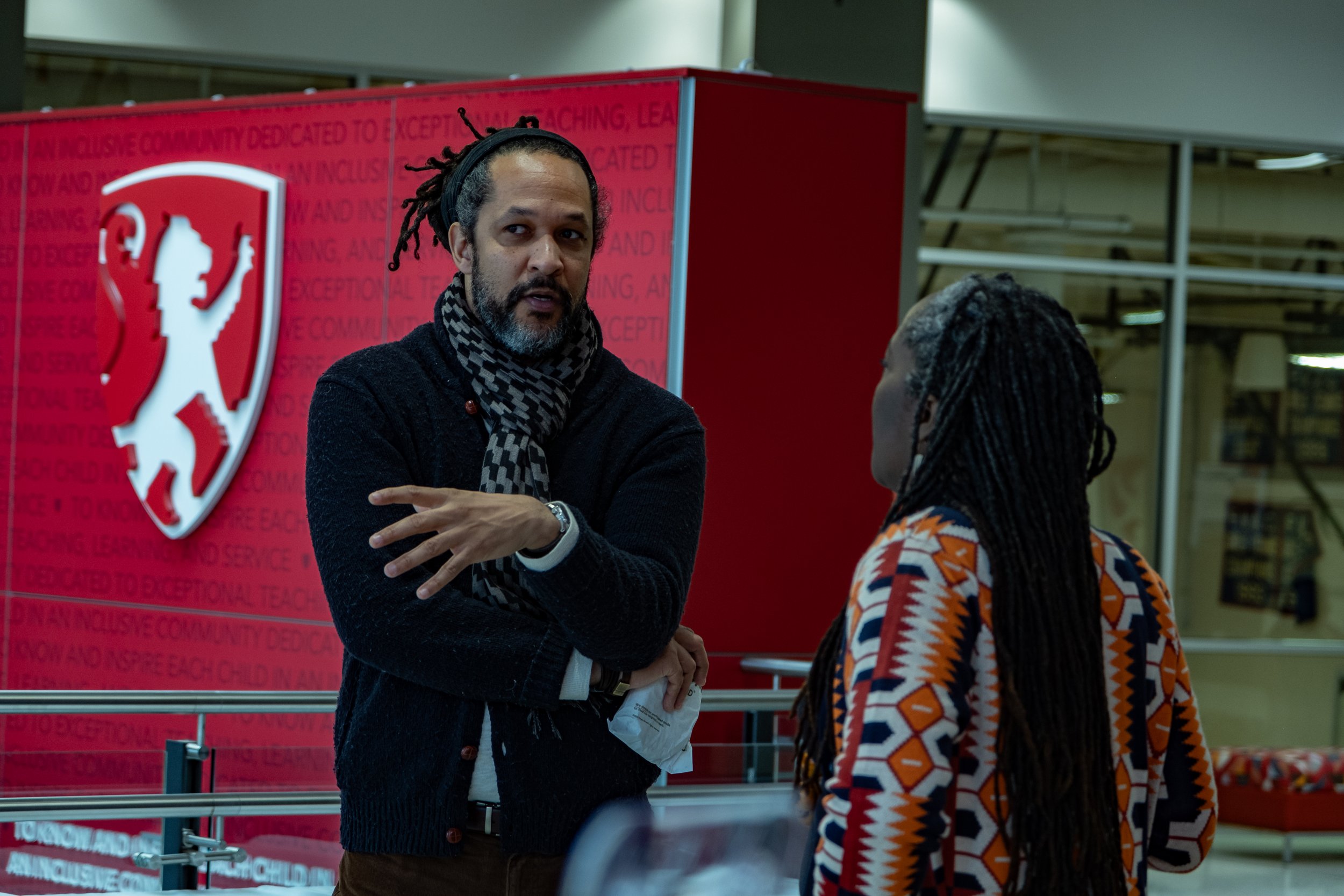
HackBAC 2025
Date: Jan 31 - Feb 2
Location: St. Andrew’s Episcopal School
Intended Audience: BIPOC (Black, Indigenous, People of Color) 8th-12th grade highly motivated students with an interest in social justice and those who work in solidarity to advance social justice for these identities.
Theme
Change Makers: Creating Sustainable Social, Political or Environmental Impacts in Our Shared Society.
The theme for HackBAC 2025 is centered on cultivating change-makers. HackBAC will take place at St. Andrew’s Episcopal School in Potomac MD., on January 31- February 2, 2025.
People of color experience a disproportionate share of exposure to environmental and societal issues. This year, participants are encouraged to think about their age-group peers and collaborate with other passionate students to develop innovative solutions that address critical social, political, or environmental challenges. Leverage technology and creativity to build a more equitable and sustainable future for all! Students will focus on issues involved with food security, health and wellness, access to education, climate and sustainability, gender equality and inclusion, as well as accessibility.
HackBAC 2025 offers students the chance to collectively think, solve, and propose solutions to environmental issues around living, energy, water, food, business, and well-being. HackBAC 2025 aims to help student teams create solutions and develop their ideas by providing extensive mentor support and advice in the areas of coding, CAD, robotics, and AI. Developers, designers, product experts, and those passionate about sustainability are also invited to participate in HackBAC 2025 as mentors. Student participants from grades 8-12 are invited to offer a fresh and creative perspective on societal issues and develop new responses through the lens of social justice to create a more sustainable and inclusive future for everyone.
Tracks
-
How might we use technology to create more inclusive learning experiences for students with diverse learning needs, such as visual or auditory impairments, dyslexia, or ADHD?
How can we design learning environments that are both physically and sensory accessible to all students, including those with mobility challenges, sensory sensitivities, or chronic illnesses?
How can we empower students with disabilities to advocate for their own learning needs and access the accommodations and support they require to succeed?
-
How do the youth partner with their school and community leaders to make their neighborhoods sustainable?
How can we use technology to promote sustainable practices, reduce our carbon footprint, and conserve resources in our daily lives?
What are the factors and consequences of climate change impact communities and their long-term effects?
-
How can we design innovative and sustainable food-growing systems in urban spaces to make healthy food more accessible to underserved communities?
What role can schools and youth leaders play in reducing food waste and ensuring that surplus food supports local families in need?
How can we inspire students and families to make healthier eating choices through education, school programs, and community engagement?
-
How can we create programs or tools that help students from all backgrounds feel included, learn healthy ways to handle stress, and find joy and support at school?
What are some fun or creative ways to help teens build healthy habits, like eating better, staying active, sleeping well, or spending time with friends?
Why do some people or communities have a harder time getting help for their health, and how can we make it easier for everyone to get the support they need?
-
What can schools do to ensure equal access and elevation of BIPOC Girls high school sports equipment, facilities, and coaching for students?
How do we empower women of color to work and grow in STEM fields?
How can we incorporate diverse voices and perspectives from BIPOC LGBTQ+ in independent schools?
-
How has your current educational experience, including the use of technology and Generative AI, empowered you to learn and succeed, and what aspects hinder your ability to reach your full potential?
How can we create an ideal, meaningful, student-centered educational experience that fosters curiosity, creativity, and a love for learning while effectively combining technology and human creativity?
How can we empower learners to take ownership of their education while ensuring teachers provide the right balance of guidance and support?
What to Expect
-
Opening (Jan 27) 7:00 pm - 9:30 pm
Day 1 (Jan 31) 7:45 am - 9:30 pm
Day 2 (Jan 31) 7:45 am - 7:30 pm
Day 3 (Feb 2) 7:30 am - 12:00 pm
-
• HackBAC SwagPAC
• Ability to win up to $1,000 in entrepreneurship credits — additional credits available to be used as seed money post-hackathon
• 6 total opportunities to engage with the HackBAC community throughout the school year!
• Assistance with prototyping your idea, no matter if your team placed or not; with 3 post hackathon gatherings to move idea from pitch to prototype
• Exposure and ability to network with high-level executives and experts
• Placement with a dynamic mentor that guides your team
• Lunch for one day ($25 Uber eats gift card)
• Opportunities to create national and international networks of like-minded students
-
General Admission: $375 - $499
Early Bird: $249 - $475
Note: We are offering multiple participant discounts depending upon the number of students that compete from each school. Due to the continued generosity of our donors, we are able to provide a few discretionary partial scholarships to reduce the cost of participation.
If the cost of the event prevents student participation, please have the Faculty Advisor contact the HackBAC planning team at blackalumnicollective@saes.org.
-
Monetary prizes (entrepreneurship credits) will be awarded for ideas presented by groups and chosen by a panel of experts at the conclusion of the hackathon. Ultimately, teams will be competing to win up to $1,000 in entrepreneurship credits for their venture.
-
Students will have the opportunity to participate in the event year round:
• 2 meetings with mentors prior to the event
• The 3-day hackathon
• 3 follow-up meetings to help students move from pitch to prototype



